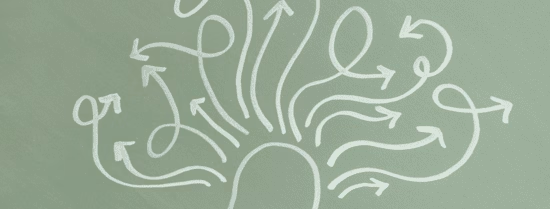We live in a time where change seems to be the only constant. Technology is advancing rapidly, industries are being reinvented, and societal challenges demand new answers. What you knew and could do yesterday may already feel outdated today. That is why the idea of lifelong learning is gaining ground: it is not only about your career, but also about your wellbeing, resilience, and your contribution to society.
Staying adaptable in your career
The labour market is changing at a breathtaking pace. According to the OECD, around 14% of current jobs are likely to disappear and another 32% will be significantly transformed by automation and digitalisation over the next two decades (OECD, The Future of Work, 2019). That might sound abstract, but it directly affects your work: skills that are common today may be less relevant tomorrow, while demand for new knowledge is growing. By continuing to learn, you increase your adaptability. It gives you the freedom to seize opportunities, whether your job changes or you decide to take a new direction yourself.
Staying healthy and resilient
Lifelong learning is not only about your career, but also about you as a person. Research shows that continuous learning and challenging yourself has a positive impact on health and wellbeing. People who keep learning tend to remain cognitively fit for longer and often experience greater mental resilience (Xu et al., The Lancet Public Health, 2019). The feeling that you can take on new challenges, that you are still growing, builds confidence and energy. It can even help you cope better with stress. In a world where workload and change can sometimes feel overwhelming, that might be the most important reason to keep learning: it keeps you mentally vital.
Driving innovation together
You do not just learn for yourself. By acquiring new skills and knowledge, you also help to drive innovation in your organisation or sector. The Scientific Council for Government Policy (WRR) stresses that investment in skills and human capital is essential to successfully achieve major transitions, such as the shift to sustainable energy and innovation in healthcare (WRR, Better Work, 2020). Whether you work in healthcare, education, technology, or business: your development makes you stronger, but also a valuable link in shaping the future of your field.
Perhaps you wonder: do I really need this? The reality is that no one can rely on a single diploma or degree for an entire lifetime anymore. But there is good news: learning does not have to be heavy or time-consuming. It can start with a short course, a new skill you pick up alongside work, or a training programme you follow together with colleagues. Every step you take increases your opportunities, your confidence, and your enjoyment in both work and life.
The role of Erasmus University Rotterdam
At Erasmus University Rotterdam we take this responsibility seriously. In our Strategy 2030, we have identified Lifelong Learning as a strategic priority (EUR, Strategy 2030, 2025). We see that knowledge only has real impact when it reaches society – not only through our students, but also through professionals at every stage of their careers. Whether you are working on sustainable innovations in the port, seeking new solutions in healthcare, or reinventing your own career, we aim to be a knowledge partner for you.
- More information
Want to know more or ready to take the next step?
Are you curious about how you can continue to grow alongside your career? Erasmus University Rotterdam offers short programmes, courses and learning pathways designed to match today’s and tomorrow’s challenges. Practical, academically grounded and directly applicable to your work and life.
Explore our current portfolio and take the next step in your development today.

